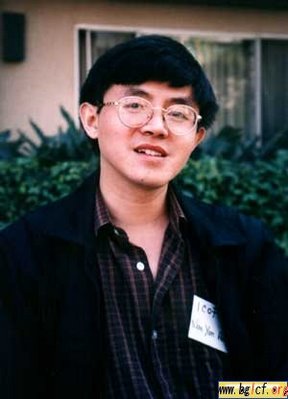 BEIJING - A prominent Chinese AIDS activist has gone missing after meeting with police, the activist's organization said Saturday, amid a suspected clampdown ahead of World AIDS Day.
BEIJING - A prominent Chinese AIDS activist has gone missing after meeting with police, the activist's organization said Saturday, amid a suspected clampdown ahead of World AIDS Day.Four police officers showed up at the Beijing offices of Aizhi, an AIDS advocacy group, on Friday morning and questioned Wan Yanhai for much of the day, the group said in a statement on its Web site.
Around noon, with police still present, Wan ordered colleagues to cancel a symposium on AIDS, blood safety and legal rights that had been scheduled for Sunday, the group's statement said.
Wan had not been heard from since he had a brief mobile phone conversation with a colleague Friday evening, the statement said.
"The colleague asked Wan Yanhai his whereabouts, and Wan Yanhai replied that he was being questioned. Since then, his colleagues and family have lost contact with Wan Yanhai," the group said. Wan's mobile phone has been switched off.
Wan has been one of China's most dogged campaigners for AIDS awareness and effective public health policies. He has frequently angered the Communist government, which had long ignored the spread of the disease. Wan has also drawn harassment from the police.
Although Beijing launched a more open and energetic fight against AIDS two years ago, Wan's apparent disappearance highlights the government's lingering antipathy toward outspoken activists.
The government acknowledges the spread of AIDS is accelerating. The Health Ministry reported days ago that over the first 10 months of this year the number of reported HIV and AIDS cases rose nearly 30 percent, to 183,733, from 144,089 at the end of last year.
Health experts say actual cases are likely to be four to five times the reported figure.
Though it was not immediately clear what prompted police to question Wan, initial signs pointed to the now-canceled symposium on Sunday.
Wan's colleagues at Aizhi said more than 60 people, some of them AIDS sufferers and their family members, had been invited to the symposium, one of the activities marking World AIDS Day on Dec. 1.
Twice on Friday while being questioned, Wan told his colleagues to be sure any participants who had come to Beijing from elsewhere returned home, the Aizhi statement said.
"Whether this is or isn't sensitive is not by our definition. It's theirs," said Wang Lixuan of Aizhi. A colleague, who refused to disclose her name, said the group held a similar symposium a year ago before AIDS day.
In a sign that organizers were aware of possible trouble, they did not publicize the symposium's location, but told participants to come to the Aizhi office for details.
The event's topics - blood supply safety and legal rights - touch on issues of government responsibility. Several localized AIDS epidemics in China were caused by tainted blood supplies and unsanitary transfusions, and victims have struggled to win compensation from the state health system.
In recent days, state media have reported on failed attempts for legal redress by farming families from an eastern Chinese village who contracted AIDS after selling blood in the mid-1990s.
The Tongshan County court refused this month to accept their lawsuit for compensation, citing pressure from higher-level officials, according to state media reports.
Such reports are emblematic of the government's turnabout on AIDS after treating the disease with silence and ineffective policies throughout the 1990s.
Wan has been a thorn in the government's side throughout. He was sacked from a Health Ministry job in 1994 after publicly calling for AIDS education and gay rights.
He founded the Aizhi group later that year, and has since been occasionally detained.
His publicizing of another epidemic from blood transfusions, in Henan province, landed him in detention for two months in 2002.
from The Associated Press
No comments:
Post a Comment